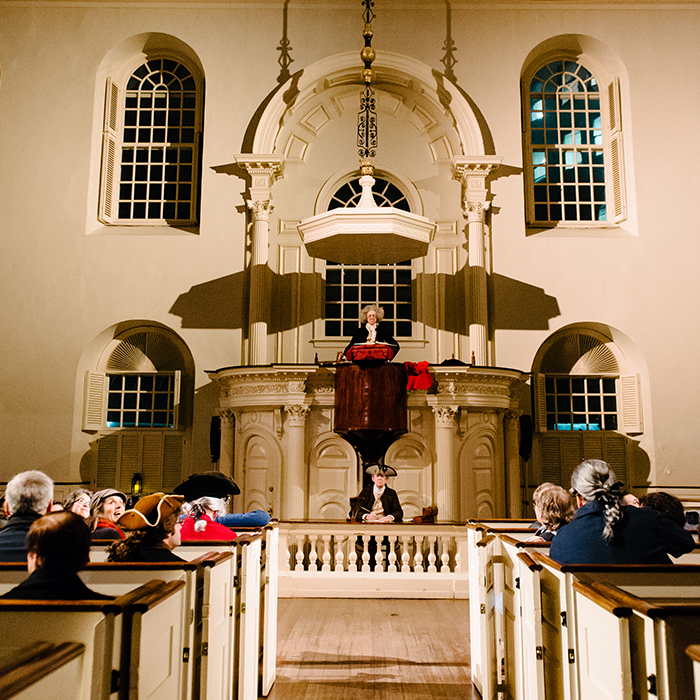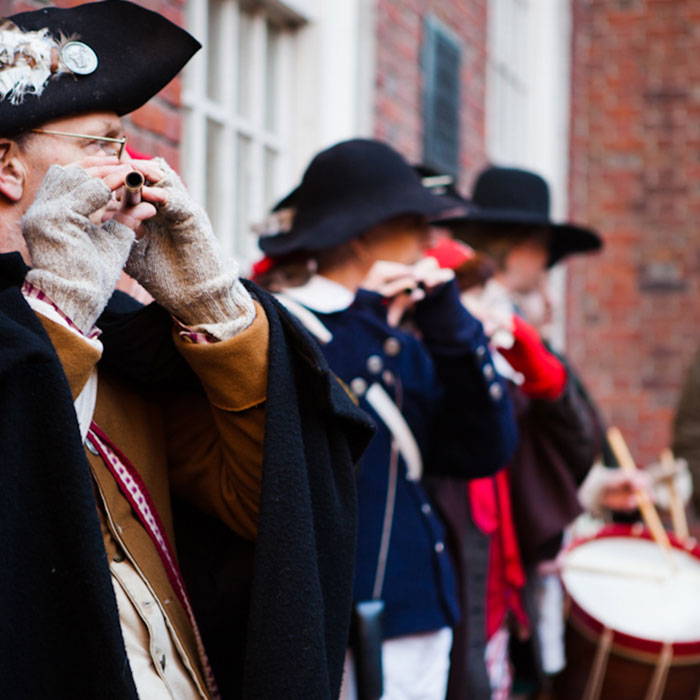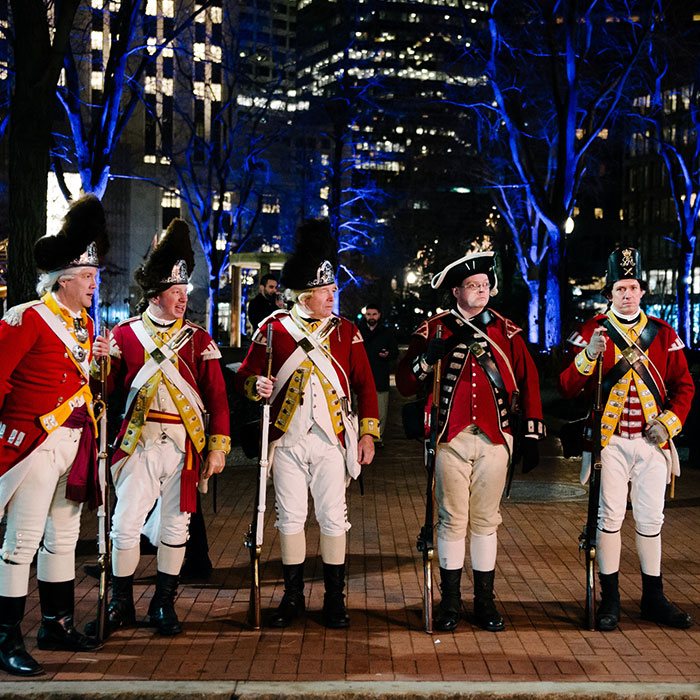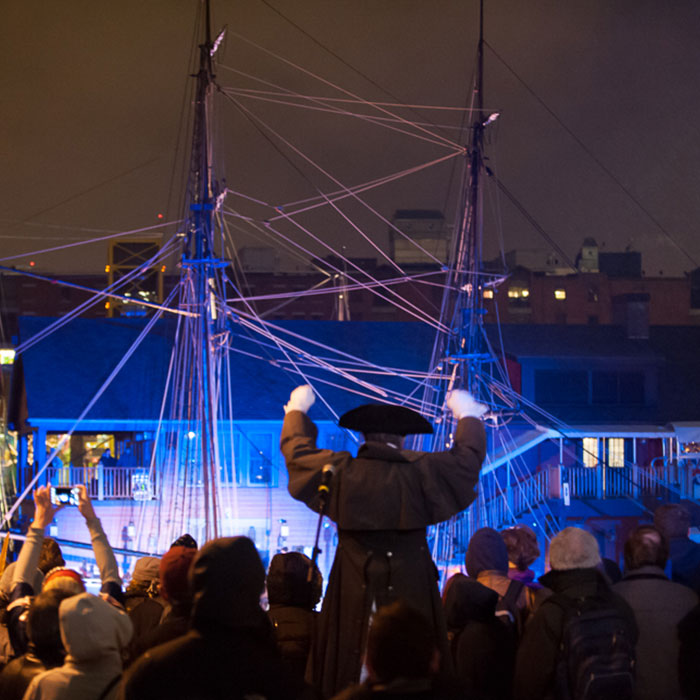The Boston Tea Party is one of the most well-known protests in world history. Throughout history, citizens have used protest as an agent of societal change in an effort to build a better community. Students are encouraged to express their thoughts and connections to the concept of “protest” and what it means to them in both a historical and contemporary sense.
Students are encouraged to submit essays, artwork, poetry, and other creative projects inspired by the central themes of the Boston Tea Party:
To commemorate the 250th Anniversary of the Boston Tea Party, we’re giving young scholars across the nation a chance to commemorate the Boston Tea Party from their classrooms.
The story of the Boston Tea Party is composed of themes centered around ideas of protest, civic engagement, representation, and commemoration. These concepts are valuable in helping students understand their own role in shaping the future of their community.
Beginning in September of 2023, students are encouraged to express their personal thoughts and connections to these important themes through creative writing projects, videography, or artistic design.
Uploaded student works will be featured in a special virtual exhibit at BostonTeaParty250.org.
Students are encouraged to use the following as inspiration for their projects:
One of the key concepts associated with the Boston Tea Party is the idea of representation in one’s government. In the lead-up to the destruction of the tea, colonists were required to pay taxes without having a say in government policies. This “taxation without representation” led to non-importation efforts and protests, eventually culminating in the Boston Tea Party. Students are encouraged to share their thoughts on the meaning of representation in government and their personal connection to their government on a state or national level.
Meetings of the “Body of the People” were a central part of the Boston Tea Party. Town meetings can trace their roots to the earliest days of New England, where gatherings of citizens would openly debate and discuss matters of importance to their community. Decisions made at these town meetings would affect all members of the community. However, it should be noted that not all who lived in these communities were welcome and not all voices were heard or represented. Students are encouraged to participate in an act of civic engagement or civic service and communicate their experiences though art or creative writing.
In the years immediately following the Destruction of the Tea, the event was not celebrated as significantly as it is today. In fact, the term “Boston Tea Party” was not published until 1826. This coincided with a revival of “revolutionary spirit” sweeping across the country in the early- 1800s as a number of Boston Tea Party participants began to tell stories of their involvement. Later, as the Centenary of Boston Tea Party approached, commemorations took place across the nation. Over many years, historical reenactments and commemorations have continued as a way for us to feel a tangible connection to historic events. As we prepare to mark the 250th anniversary of the Boston Tea Party, students are encouraged to create their own commemoration of this iconic moment in history through artistic works, paintings, dioramas, creative essays, digital media, or video creation that conveys historical information related to the Boston Tea Party story.
*Please note: By participating, each school grants permission for student artwork to be posted on the aforementioned website and/or social media affiliated with the 250th anniversary of the Boston Tea Party.
Student Entries
How to submit your work
Using the inspirational themes of Protest, Representation, Civic Engagement, and Commemoration, create your own unique depiction of the Boston Tea Party through the visual arts in the form of a drawing, painting, digital illustration, collage, dioramas, etc. Likewise, you may choose to funnel your thoughts through critical or creative writing in the form of an essay exploring one or more of the themes. You may also choose to break away from the pen, pencil, or brush and explore the themes through digital media or video creation that conveys historical information related to the Boston Tea Party story.
Please follow the submission instructions above for your preferred mode and medium for the project.
Essay: Once you have completed your written essay on one of the four themes noted above. Save your document as one of the following file types: pdf, jpg, gif, png. Remember to check your spelling and grammar!
Image: Using any of the four themes above as inspiration, create an artful image using any medium that can be photographed or scanned such as a drawing, painting, collage, digital, diorama, etc. Save your image as one of the following file types: jpg, png, gif, pdf.
Video: Get out your smart devices and produce a short video on any of the listed themes above! Once edited and complete, upload it to YouTube, Vimeo, or a similar platform remembering to make it public and then provide that link in the form submission below.
Once your project file is saved, fill out the “Student Entries” form below and upload your file or copy and paste your video link and click the SUBMIT button.
Your project will be reviewed by staff from the Boston Tea Party Ships & Museum. Once approved you may find your work proudly displayed on Bostonteaparty250.org!
**It is highly suggested that your work displays your first name and your last initial only.



